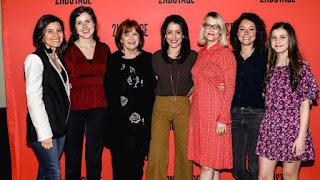Theater Review: an intense, immersive Uncle Vanya by a new company
Uncle Vanya By Anton Chekhov Directed by Richard Nelson Hunter Theater Project Manhattan, NYC September 26, 2018 Chekhov’s plays create a world of boredom and unfulfilled hopes and dreams. The mystery and wonder of the plays is that we can sit and listen to people complaining for 2-3 hours without leaving the theater. His dialogue is so revealing, and the characters so subtle and parsimonious in revealing their true identities, that one must concentrate steadily in order to truly enter Chekhov ’s world. Some modern directors overcompensate for this demand by making the characters too overt and emotive, not repressed enough. The excellent debut production of Uncle Vanya at the new Hunter Theater Project does just the opposite. It doubles down on introversion, making the extremes of the play even more intense, and immerses you in Chekhov ’s universe of stasis and disappointment unlike other productions I have seen. This immersion seems to be part of the mission of the


